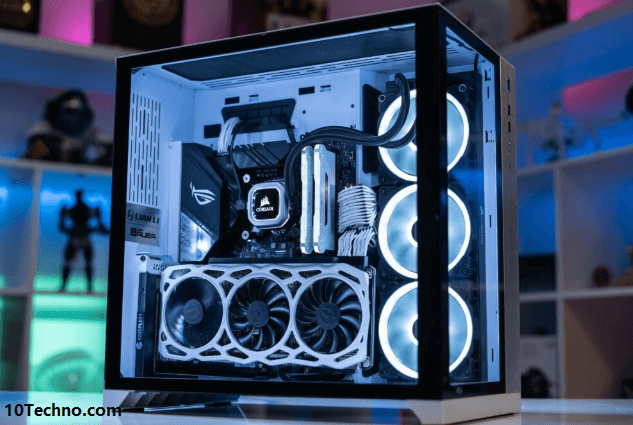In modern industries and personal computing, heat is a significant challenge that impairs productivity and reduces equipment lifespan. Overheating can cause critical components such as CPUs, GPUs, and motherboards to malfunction, leading to inconveniences and losses. In addition, heat waste can harm the environment and compromise safety, making heat management a priority for all stakeholders. Fortunately, water cooling equipment provides an efficient and eco-friendly method of heat removal that can prevent overheating and enhance system performance. This blog explores water cooling equipment, its benefits, and its applications.

Water Cooling Equipment Overview
Water cooling equipment is a technology that uses water as a heat conductor to remove heat from industrial components and personal computer devices. Unlike air cooling, which uses air as the heat transfer medium, water cooling involves circulating water or a coolant through a loop that absorbs heat from the component, transfers it to a radiator, and disperses it into the air or a separate water loop. Water cooling equipment comprises various components, including a water block, a pump, tubing, a radiator, a reservoir, and fittings. Each component plays a critical role in maintaining the water loop's pressure, flow rate, and heat exchange efficiency.
Benefits of Water Cooling Equipment
Water cooling equipment offers several benefits that make it an excellent alternative to air cooling.
1. Higher Efficiency: Water has a higher heat capacity and thermal conductivity than air, meaning that it can remove more heat in less time, leading to lower operating temperatures and increased performance. Water cooling also enables reduced fan noise and better airflow management capabilities.
2. Overclocking: Water cooling allows users to overclock their CPUs and GPUs to higher frequencies than air cooling, leading to faster processing and better gaming experiences.
3. Environment-Friendly: Water cooling reduces the energy consumption of cooling systems and does not require toxic refrigerants such as CFCs or HFCs used in traditional HVAC systems.
4. Longer Equipment Lifespan: By keeping components cool, water cooling equipment promotes stability, reliability, and longevity, reducing the need for frequent upgrades, repairs, and replacements.
Applications of Water Cooling Equipment
Water cooling equipment has diverse applications across industries and personal computing environments.
1. Industrial Cooling: Water cooling is widely used in large industrial facilities such as steam electric power plants, hydroelectric generators, petroleum refineries, and chemical plants. These systems use water cooling equipment to remove heat from boilers, turbines, compressors, and other equipment that require efficient heat removal.
2. Automotive Cooling: Water cooling is commonly used in automobile internal combustion engines to remove heat from the engine block and prevent overheating. Water cooling systems use a radiator, a water pump, and a thermostat to ensure that the engine operates at the right temperature.
3. Personal Computing: In recent years, water cooling has become a popular method of cooling high-end personal computers such as gaming PCs and workstations. Water cooling allows users to overclock their CPUs and GPUs to higher frequencies without the risk of overheating, leading to smoother and faster performance.
4. Lubricant Cooling: Some industrial applications require cooling of lubricant oil in pumps, compressors, and turbines to prevent degradation and maintain viscosity. Water cooling equipment can provide efficient and reliable lubricant cooling to optimize equipment performance.
Conclusion
Water cooling equipment is a versatile and efficient method of heat removal that can enhance the performance and lifespan of industrial and personal equipment. Whether in large industrial facilities or high-end gaming PCs, water cooling offers several benefits that make it an excellent alternative to traditional air cooling methods. With the right water cooling equipment, industrial and personal users can prevent overheating, reduce energy consumption, and achieve optimal performance.